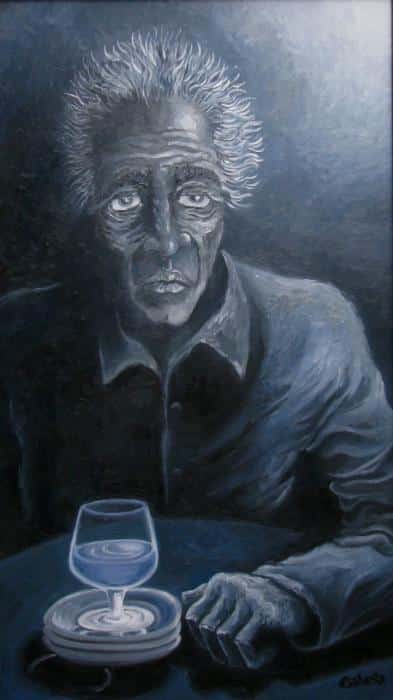Authors use many tactics to reveal a character’s personality. In the short story, A Clean, Well-Lighted Place, Hemingway exposes the attributes of his characters through narration and dialogue. The older waiter’s characteristics are exhibited through the waiters’ conversations and the observations the narrator makes.
The author cleverly associates the older waiter with the old man. This connection gives the audience a clear understanding of the loneliness and old age the waiter faces.
The older waiter in Hemingway’s story identifies with the old man. This is evident through the statements he makes to the younger waiter. In the beginning of the work the younger waiter is complaining about the old man staying at the cafe.
The older waiter takes up for the old man by explaining that the old man, “stays up because he likes it” (Hemingway 160). This is the initial time that the older waiter indicates that he identifies with the old man’s feelings. This identification becomes more apparent farther in the work.
For instance, the older waiter categorizes himself as being one, “of those who likes to stay late at the cafe”(Hemingway 161). With this declaration, the older waiter places himself in the same group as the old man. Hemingway’s comparison of the old man and the waiter becomes unmistakable through the words of the older waiter.
Loneliness and old age are the common bonds that the older waiter shares with the old man. This is manifested through the dialogue between the two waiters. For example, when the younger waiter boasts about his youth and confidence, the older waiter jealously replies, “I have never had confidence and I am not young”(Hemingway 161).
The older waiter goes on further to illustrate that all he has is work. The older waiter later displays his loneliness through his compassion for the old man and others like himself. For instance, when the younger waiter remarks that he wishes to go home for the night, the older waiter says, “I am reluctant to close up because there may be someone who needs the cafe” (Hemingway 161).
Through the author’s comparison of the old man and the older waiter, he reveals the waiter’s loneliness and desire for youth.
The narration communicates the personality of the older waiter. For example, the narrator depicts the old waiter as, “not dressed to go home”(Hemingway 161). The author is implying that the older waiter will be in search of a drinking area, much like the cafe, after the cafe closes. Similar to the old man, the older waiter does not want to go home.
Later in the story, the older waiter is at a bar drinking. The narrator mentions that, “it is too late at night for conversation” (Hemingway 162). This image reminds the reader of the old man sitting silently alone at the cafe. Again the audience sees the old man’s loneliness illustrated in the older waiter.
The connection attaching the old man to the older waiter enabled the reader to recognize the waiter’s loneliness and broken spirit. The conversations between the two waiters also discloses many of the older waiters’ temperaments. Hemingway reveals his character through speech and statements by the narrator.


Neat!